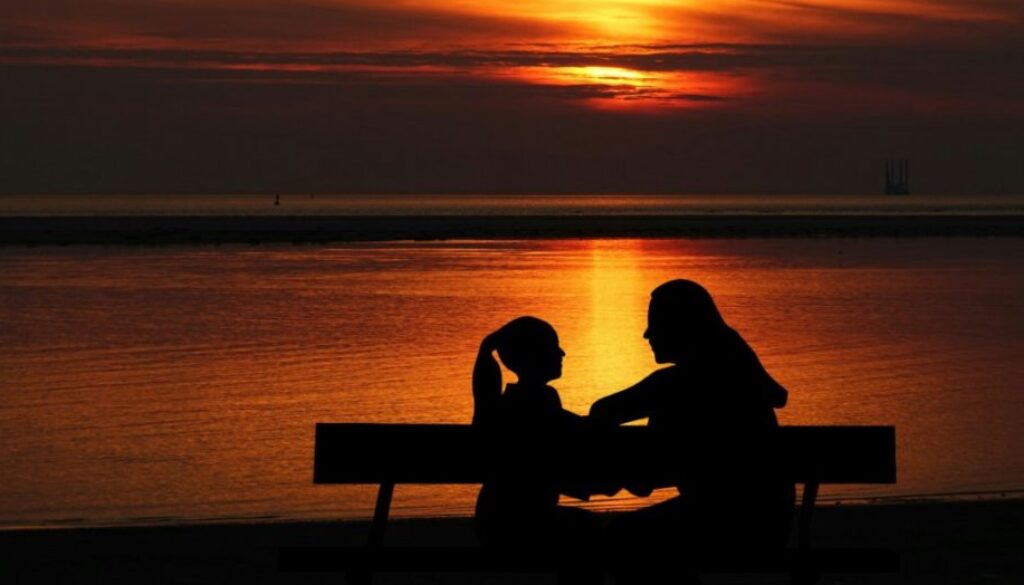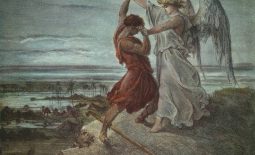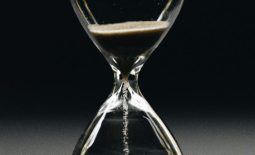The Embodied Experience
“When they laid you in the crook
of my arms like a bouquet and I looked
into your eyes, dark bits of evening sky,
I thought, of course this is you,
Like a person who has never seen the sea
Can recognize it instantly.
They pulled you from me like a cork
And all the love flowed out. I adored you
With the squandering passion of spring
That shoots green from every pore.
You dug me out like a well. You lit
The deadwood of my heart. You pinned me
To the earth with the points of stars.
I was sure that kind of love would be
Enough. I thought I was your mother.
How could I have known that over and over
You would crack the sky like lightning,
Illuminating all my fears, my weaknesses, my sins.
Massive the burden this flesh
Must learn to bear, like mules of love.”
–Ellen Bass (From The Torah: A Women’s Commentary)
I don’t often incorporate poetry into my sermons. Why? Perhaps because I want my exegesis – my explanation and teaching of Torah – to be grounded, solid, somehow objective. Maybe I consider poetry to be… well, not exactly frivolous, God forbid, but somehow unfitting for the occasion where I want to bring the rigors of the intellect rather than open up the soft places of the heart. It is said that every rabbi preaches one sermon throughout their career, meaning that each rabbi will have a particular message that comes out again and again in different permutations. What it certainly does speak to is the sense of self that a Rabbi may have: what makes us tick? Perhaps in my case, I am vested in a sense that my womanhood ought to be an irrelevance to my rabbinic vocation.
Every now and again, I might be the first female rabbi that people run into, and a question I get asked is ‘what is it like to be a female rabbi?’ (British gentlemen of a certain generation would say ‘lady rabbi’ which amused and endeared me to no end!) I would always be intent on answering the question by saying ‘I’m just a rabbi who happens to be a woman’, wanting very much to be judged on the content of my character and the quality of my training. But upon further reflection, I wonder whether that is honest. I cannot divorce my rabbinate from the experiences and identities that shape me – no human being can. We are, after all, all embodied beings and Judaism – the embodied spiritual path par excellence – would have it no different.
This is the last sermon I will give before I cycle off for my maternity leave and so I’m taking my chance by making it a little more personal and I hope you will forgive me for doing so. In the crucible of these words, I pour a lot of reflection: praying and hoping for a healthy baby girl, the joys and worries, the anticipation and exhilaration of welcoming a third new child into our family, the gratitude I feel towards this community for your love, kindness and support, and the wistfulness that I will miss you all for twelve weeks, especially during the High Holidays (although you will be left in excellent rabbinic hands!)
I have been reflecting on what it means to have an ‘embodied rabbinate’, to journey through these life cycles with my congregation; in all my full womanhood and personal agency, heavily and visibly pregnant, a mother and a wife as well as a rabbi, teacher and spiritual leader. These questions are not new to women or Jewish women, for that matter. They are as ancient as our Torah. The women who got to experience these sacred tensions are none less than the heroines of this week’s Parashah, the Daughters of Zeloph’chad.
Many Jewish women, especially of an egalitarian or feminist bent, identify strongly with these five sisters who appear in Numbers 27 and I felt so drawn to their story that I named my daughter after one of them. ‘Shemot b’notav Machlah, Noah, v’Choglah, u’Milcah v’Tirzah’ the Torah tells us. Their names are Machlah, Noah, Choglah, Milcah and Tirzah. The backstory is that their father has died and they have no male kinsmen. They petition Moses to directly inherit their father’s holding so that they could preserve their inheritance and family name. Moses doesn’t immediately issue a ruling, probably in recognition of the complexity of the case, and takes the case to God. God, however, does issue a ruling: ‘ken benot Tzelof’chad dovrot’ – ‘the Daughters of Zeloph’chad’s words’ are right’ – and God amends the law to include female inheritance.
Of course, the story doesn’t end here: the new law is revisited (and slightly amended yet again) in Numbers 36 and so esteemed were the five sisters that they are mentioned in chapter 17 of the Book of Joshua. It is rare for women to receive so much ‘airtime’ in Tanakh and the Rabbis who crafted Midrash were universally praiseworthy of the sisters, commending their intellect, bravery, strategy, piety and discipline. In fact, Midrash Yalkut Shimoni states in a stunning and subversive interpretation:
‘When the daughters of Tzelafchad heard that the land was being divided among the tribes but not among the women, they convened to discuss the matter. They said: God’s mercy and compassion is not like the compassion of man. Mankind favors men over women. God is not like that; His compassion extends to men and women alike.’
What are we to make of these five brave women? When preparing a Bat Mitzvah student last year, for Parashat Pinchas, we focused on strategy: on how they successfully moved the needle, how they overcame their own fears, how they held their own and negotiated their victory. In short, we focused on leadership – an important message for a young woman coming of age. Yet, today, I would encourage us to think of this story from a different perspective, namely the embodied perspective. The five women brought themselves to the encounter: not through an emissary, not by proxy, but through their own voice and agency. They embraced their womanhood, as the Midrash suggests, on their own terms. Their appeal wasn’t a theoretical exercise in Torah constitutional law but a full-throated proclamation of their lived experience. Not only were they brave, but real and authentic. Perhaps, as this society is still negotiating the complexity of gender and power in all spheres of life – including the rabbinate – this is a worthwhile lesson. Regardless of who we are and what gender we identify with, we deserve to be seen through God’s eyes and to see ourselves through God’s eyes: with boundless compassion and an integral sense of who we are. That includes all of us figuring out how to inhabit these strange, sacred vessels called ‘bodies’ with which we hope to move through the world with greater kindness.
I feel enveloped by your kindness and words cannot express how grateful I am to be able to speak these words from the bimah, to feel held by the bravery of Zeloph’chad’s Daughters as we shape a new narrative on how to be a woman – and how to be a human being, irrespective of gender identity. To be pinned to the earth with the points of stars, as the poem describes, and let love flow out of us. May we all feel that deep calling to be our truest, bravest selves. We are thankfully, not the first ones to do so, nor shall we be the last. I look forward to rejoining you in three months, God willing, overflowing with new love for another daughter, shaped by the poetry of a new personal reality and bringing fresh words of Torah.




